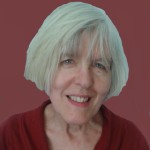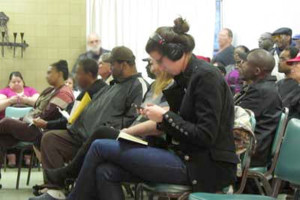NOVEMBER 30, 2015: KPFA subscribers have five more days to vote in the election for KPFA’s governing body, the Local Station Board.
Meanwhile, the National Labor Relations Board (NLRB) is hearing multiple grievances from unionized staff members at KPFA’s Southern California sister station KPFK, grievances prompted by the actions of KPFK’s recently-appointed manager. The KPFK workers say management has violated their union contract, cut their hours, and failed to pay thousands of dollars in pension contributions and union dues.
Is there a connection?
Indeed there is, and KPFA voters should take heed:
Leslie Radford, the KPFK general manager responsible for the workers’ grievances and the widespread listener complaints, was appointed by none other than KPFA board member Margy Wilkinson. And Wilkinson is now running for re-election to the KPFA board.
What’s Going On?
KPFA and KPFK are two members of the five-station Pacifica Foundation network. Each of the five stations elects a Local Station Board; then the five local boards each send four members to the Pacifica National Board (PNB), the legal “board of directors” of Pacifica. The network and its stations are supposed to be overseen by a full-time Executive Director, hired by the PNB, but the current PNB seems unable to keep an ED on the job; two have departed after short stints in the post. In the absence of an ED, the Chair of the PNB is acting ED. It was in that role that PNB Chair Margy Wilkinson appointed Radford as manager of KPFK this past June. Incredibly, Wilkinson installed Radford in the KPFK job one day before a newly-hired ED began work. Evidently, Wilkinson didn’t want to leave the hiring of a station manager in the hands of someone with actual radio experience. And Radford’s apparent qualification for the general-manager job was being a member of the KPFK board faction that’s allied with Wilkinson’s “Save KPFA.”
In only four months on the job, Radford has so alienated KPFK workers and listeners that a no-confidence petition on Change.org has garnered 250 signatures. The signatories include listeners, present and former KPFK staff, former KPFA staff members Esther Manilla and John Hamilton, and Uprising host Sonali Kolhatkar, whose program is heard on both stations. The no-confidence statement cites labor-contract violations, fundraising blunders, “disastrous programming decisions,” and other problems. It concludes, “ We believe Radford is a liability to KPFK and will lead the station to bankruptcy and/or numerous lawsuits until KPFK is no more.”
Some of the KPFK staff members have also created a Facebook page to publicize their issues; Facebook users can find it here.
Throw the Bum(s) Out?
Under Pacifica’s bylaws, the KPFK LSB could begin the process of firing Radford, although the ultimate authority is the Pacifica National Board. This month’s election could swing the balance of power on the local boards and thus the National Board. Therefore, KPFA voters should consider this advice from long-time KPFK staffer and union member Ali Lexa:
As a current SAG-AFTRA member, I can tell you the union busting at KPFK going on right now is real, and Margy Wilkinson is no friend of our union. If we don’t get the Pacifica National Board into better hands immediately, our station in LA which is the biggest non-commercial radio signal west of the Mississippi River and the most important free speech voice in Southern California, is done. So please vote UCR. It’s the pro-labor vote.
United-for-Community-Radio (UCR) is supporting a well-qualified team of nine candidates for the nine KPFA LSB seats to be filled by KPFA subscriber votes. The UCR team includes a union leader for home care workers (Marilla Argüelles), and a former organizer and shop steward (Don Macleay); they’re part of a diverse group of individuals advocating for peace and social justice.
To support both KPFA and KPFK, please vote for the nine UCR candidates! To be sure of meeting the voting deadline of Friday, December 4, KPFA subscribers should vote online using the access codes that came with their paper ballots.









